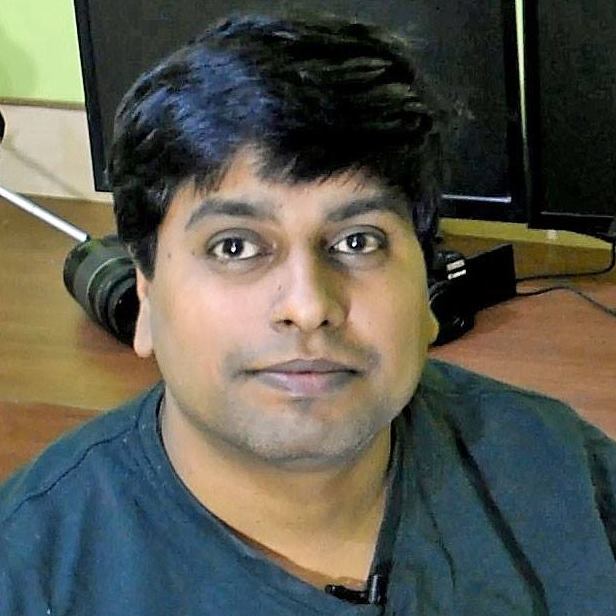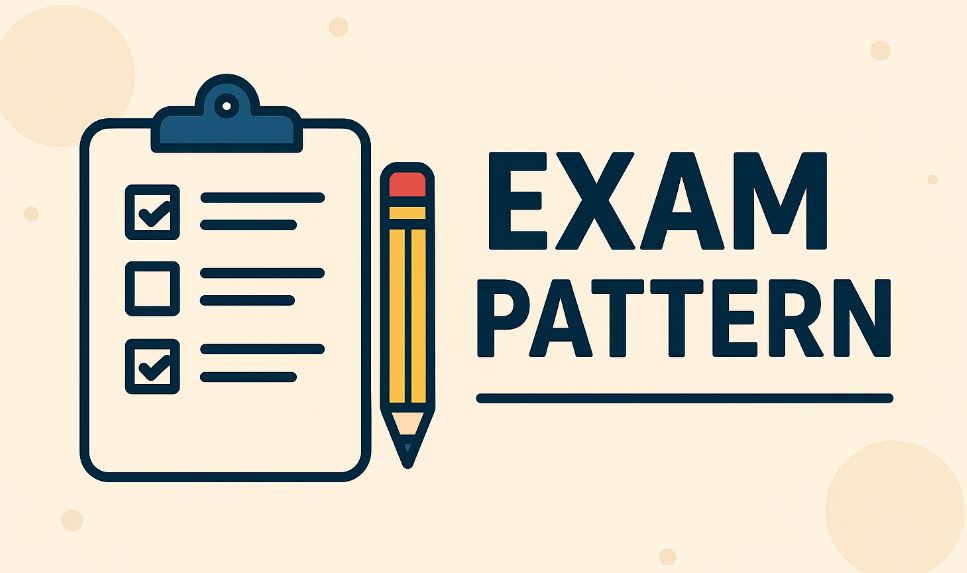Are you an MBBS graduate dreaming of a prestigious career in government medical services? The UPSC Combined Medical Services (CMS) Examination 2026 is your gateway to roles like Medical Officer in Central Health Services, Indian Railways, or Municipal Corporations. With the official notification set for March 11, 2026, and the exam on August 2, 2026, understanding the UPSC CMS exam pattern 2026 is crucial for success. This comprehensive guide breaks down the structure, syllabus, and strategies to help you ace the exam on your first attempt.
In this post, we’ll cover everything from the two-stage selection process to key topics, marking scheme, and expert tips. Whether you’re a fresher or revisiting your prep, stay tuned for actionable insights to optimize your study plan.
What is the UPSC CMS Exam 2026?
The Combined Medical Services Examination (CMS) is conducted annually by the Union Public Service Commission (UPSC) to recruit Medical Officers (Group A) for various central government organizations. Unlike the Civil Services Exam, CMS focuses on clinical and preventive medicine, making it ideal for MBBS holders seeking stable, high-impact roles in public health.
For 2026, the exam follows a consistent pattern from previous years, with no major changes announced yet. Expect around 700-800 vacancies, similar to 2025’s 705 posts. The process includes a Computer-Based Examination (CBE) worth 500 marks and a Personality Test (100 marks), totaling 600 marks.
Key Dates for UPSC CMS 2026:
- Notification Release: March 11, 2026
- Application Window: March 11 to March 31, 2026
- Admit Card Release: Late July 2026
- Exam Date: August 2, 2026 (Sunday)
- Result Declaration: Expected September-October 2026
Mark these dates in your calendar and start preparing early!
UPSC CMS Exam Pattern 2026: Overview
The UPSC CMS 2026 exam pattern is straightforward yet demanding, emphasizing objective-type questions from MBBS-level subjects. It’s a two-part process designed to test your medical expertise, clinical reasoning, and personality fit for public service.
Stage 1: Computer-Based Examination (CBE)
- Mode: Online (Computer-Based Test)
- Total Marks: 500
- Duration: 4 hours (2 hours per paper)
- Question Type: Multiple-Choice Questions (MCQs) with 4 options each
- Negative Marking: 1/3rd marks deducted for each wrong answer
- Papers: Two compulsory papers, each worth 250 marks
| Paper | Subjects | No. of Questions | Marks | Duration |
|---|---|---|---|---|
| Paper I | General Medicine & Paediatrics | 120 (96 Medicine + 24 Paediatrics) | 250 | 2 Hours |
| Paper II | (A) Surgery (B) Gynaecology & Obstetrics (C) Preventive & Social Medicine | 120 (40 each) | 250 | 2 Hours |
| Total | – | 240 | 500 | 4 Hours |
This pattern ensures a balanced assessment of core medical disciplines. Qualifying marks for the written exam are typically 30% for General category (relaxed for reserved categories).
Stage 2: Personality Test (Interview)
- Marks: 100
- Duration: 20-30 minutes
- Focus: Communication skills, ethical understanding, leadership, and suitability for government service. Expect questions on current health issues, case scenarios, and your MBBS experiences.
Candidates shortlisted based on CBE scores (around 2-3 times the vacancies) proceed to the interview. Final merit is based on combined scores.
Detailed UPSC CMS Syllabus 2026
The UPSC CMS syllabus 2026 aligns with the MBBS curriculum, covering clinical, surgical, and community health topics. Download the official PDF from the UPSC website once released, but here’s a detailed breakdown based on the prescribed outline.
Paper I: General Medicine & Paediatrics (250 Marks)
This paper tests your diagnostic and therapeutic knowledge.
General Medicine (96 Questions)
- Cardiology: Ischemic heart disease, hypertension, rheumatic heart disease
- Respiratory Diseases: Asthma, COPD, pneumonia, tuberculosis
- Gastro-Intestinal: Peptic ulcer, hepatitis, cirrhosis, inflammatory bowel disease
- Central Nervous System: Stroke, epilepsy, meningitis, Parkinson’s
- Endocrine: Diabetes, thyroid disorders, adrenal diseases
- Infections: HIV, malaria, dengue, typhoid
- Renal: Acute/chronic kidney disease, glomerulonephritis
- Hematology: Anemia, leukemia, bleeding disorders
- Dermatology & Psychiatry: Common skin conditions, mood disorders, schizophrenia
Paediatrics (24 Questions)
- Growth & Development: Milestones, malnutrition, immunization
- Neonatology: Prematurity, birth asphyxia, neonatal jaundice
- Common Pediatric Illnesses: ARI, diarrhea, measles, congenital anomalies
- Therapeutics: Pediatric dosing, fluid management
Paper II: Surgery, Gynaecology & Obstetrics, Preventive & Social Medicine (250 Marks)
A mix of surgical procedures, women’s health, and public health principles.
(A) Surgery (40 Questions)
- General Surgery: Wounds, infections, tumors, burns
- Orthopedics: Fractures, dislocations, arthritis
- Trauma: Shock, head injury, abdominal trauma
- Urology & Genito-Urinary: Renal stones, prostate issues
- Cardio-Vascular & Thoracic: Aneurysms, pneumothorax
- ENT & Ophthalmology: Common ear/nose/throat issues, cataracts, glaucoma
(B) Gynaecology & Obstetrics (40 Questions)
- Obstetrics: Antenatal care, labor management, eclampsia, postpartum hemorrhage
- Gynaecology: Menstrual disorders, fibroids, cancers, infertility
- Family Planning: Contraception, MTP, high-risk pregnancies
- Medico-Legal Aspects: Rape examination, abortions
(C) Preventive & Social Medicine (40 Questions)
- Epidemiology: Disease patterns, vaccination programs
- National Health Programs: RCH, TB control, AIDS prevention
- Demography & Health Statistics: Population dynamics, vital statistics
- Environmental Health: Water sanitation, pollution control
- Nutrition & Occupational Health: Deficiency diseases, workplace hazards
Focus on high-yield topics like national health missions and recent outbreaks for PSM.
Marking Scheme and Qualifying Criteria
- Correct Answer: +2 marks per question
- Incorrect Answer: -0.66 marks (1/3rd deduction)
- Unattempted: 0 marks
- Minimum Qualifying Marks: 30% aggregate in CBE for UR/EWS (25% for OBC, 20% for SC/ST).
Aim for 60-70% accuracy to clear cutoffs, which were around 250-300/500 for General in 2025. No sectional cutoffs, but balanced performance across papers is key.
Preparation Tips for UPSC CMS 2026
Cracking UPSC CMS 2026 requires smart planning. Here’s how to master the pattern:
- Build a Strong Foundation: Revise MBBS textbooks like Harrison’s for Medicine, Bailey & Love for Surgery, and Park’s for PSM. Allocate 40% time to Medicine/Paediatrics due to higher weightage.
- Practice MCQs Daily: Solve previous years’ papers (available on the UPSC website) and mock tests from reputed platforms. Time yourself to handle 1 minute per question.
- Focus on Weak Areas: Use error logs to track mistakes. For interview prep, read national newspapers’ health sections and practice mock interviews.
- Time Management: Dedicate 6-8 months: 3 months syllabus coverage, 2 months revision, 1 month mocks. Take weekly breaks to avoid burnout.
- Recommended Books:
- General Medicine: Davidson’s Principles
- Surgery: SRB’s Manual
- PSM: Park Textbook
- Paediatrics: OP Ghai
- Mock Tests: Arihant UPSC CMS Series
Stay updated via the UPSC website and join online forums for doubts.
Why Choose UPSC CMS? Career Prospects and Salary
Selected candidates enjoy perks like job security, postings across India, and opportunities for specialization. Starting salary: ₹56,100 (Level 10, 7th CPC) with allowances, rising to ₹2.5 lakh+ with promotions.
Conclusion: Gear Up for UPSC CMS 2026 Success
The UPSC CMS exam pattern 2026 is your blueprint to a rewarding career in public health. With a clear understanding of the structure, syllabus, and strategy, you’re set to outperform the competition. Start today—consistency is your superpower!
Have questions on UPSC CMS syllabus 2026 or prep hacks? Drop a comment below. Subscribe for more updates, and share this guide with fellow aspirants. Best of luck; the white coat awaits!
Last Updated: November 13, 2025. Check the official UPSC website for notifications.
Sources
- UPSC Official Notification for CMS 2025 (Pattern reference for 2026)
- UPSC Annual Calendar 2026
- Previous Year CMS Question Papers and Cutoff Analysis – UPSC Archives
- Park’s Textbook of Preventive and Social Medicine (26th Edition)
- Harrison’s Principles of Internal Medicine (21st Edition)
- Bailey & Love’s Short Practice of Surgery (28th Edition)
- OP Ghai Essential Pediatrics (10th Edition)
- UPSC CMS Syllabus – Official UPSC Document
- 7th Central Pay Commission Salary Structure for Medical Officers

Hi, I’m Varun Pathak, the founder of TheSarkariNaukri.com—a dedicated platform for the latest updates on government jobs (Sarkari Naukri) in India. With years of experience curating reliable information on job vacancies, admit cards, exam results, and preparation strategies, I help thousands of aspirants navigate the competitive world of public sector opportunities. Passionate about job security, career growth, and empowering freshers for roles like IAS, IPS, and PSU positions, I update the site regularly with actionable insights for 2025 and beyond. Let’s connect to turn your career dreams into reality!
